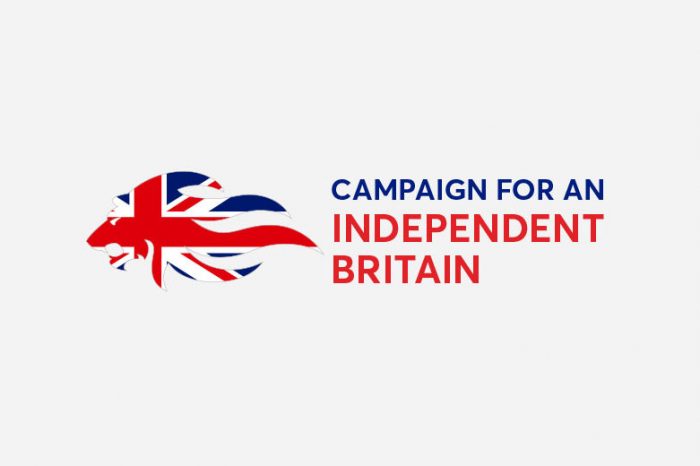The EU’s Political Subversion of European Churches
DR ANTHONY COUGHLAN of the Irish National Platform is a long-standing friend of the British Eurosceptic movement. It was his cogent précis of the constitutional effects of the Lisbon Treaty which inspired to compilation of our CIB booklet “A HOUSE DIVIDED – Can Parliament serve two masters, the nation and the European Union?”.
He has kindly given his permission for the following letter to be circulated to British colleagues who may find this overview of the EU’s involvement with the Churches of Europe useful.
The EU is an organisation which works through other organisations – as with member states, so with Churches. If it can capture the political leadership of a state of a Church to advance its project, it really does not need to bother much about the citizens of the member state or the individual members of a Church or other organisations which it subverts. It is a corporatist organisation, dealing with other corporate groups.
So, to those who say we should not mix politics and religion, we have to reply that the EU has already done so. It wants its client Churches to provide “a soul for Europe”. Many Church members may not be aware of the political espousal of the EU by their Church’s leaders.
Unless those Church members campaigning for national independence are content to leave the EU in control of collaborationist Church leaderships (supported by their own donations and Sunday collections), they have to start speaking up and asking questions.
Dr Coughlan’s comments give a very good point from which to start.
Dear Edward,
Thank you very much for sending me those interesting documents on the Christian Churches and particularly on the Church of England. I have printed these out and they contain some illuminating stuff.
I remember Jens-Peter Bonde introducing me to an EU critical Lutheran Clergyman in Denmark some time in the early 1990s, who described how the EU Commission and the European Movement at that time were making a particular effort to co-opt the Christian Churches into supporting the EU project.
They seemingly set this objective as a key political goal following the Danish and Irish Maastricht Treaty referendums in the early 1990s when the Lutheran clergy in Denmark, for instance, tended to be on the No side.
Traditionally, it seems, the Lutheran Churches of Scandinavia, which are all State Churches as you know, tended to be EU critical, as they stood by the sovereignty of their respective Crowns/Monarchs, representing the national State sovereignty.
As regards the Church of England, you have heard the old wisecrack, I am sure, that the Church of England is the Tory party at a prayer! So I expect that the evolution of opinion in the C of E over the years has mirrored that within Conservative circles as a whole.
I don’t know how successful the EU’s co-option exercise has proved with the Lutheran Churches, but it certainly been hugely successful as regards to the Roman Catholic Church, which is my own background, especially in the 1990s/early 2000s…I expect that the post 2008 financial crisis has brought new issues into play – the growth of poverty, unemployment etc. – which perhaps reduces the Europhilia of various Church hierarchies, as they have to pay attention to such developments and deplore them from a Christian prospective.
The Catholic Church in Ireland, influential through it was, did not involve itself officially in any way in the 1987 Single European Act, 1992 Maastricht and 1998 Amsterdam Treaty referendums.
However in the 2001 Nice Treaty referendum, the newly formed European and International Affairs Committee of the Irish Catholic hierarchy caused consternation among the many Catholic traditionalists on the No-side by coming out with a statement shortly before the referendum which implicitly pointed towards the desirability of Catholics voting Yes. Frantic efforts by some of the Catholic No-side people persuaded two of the bishops to say or imply that they supported the No side, but a lot of damage was done.
Similar interventions occurred in subsequent Irish referendums – in the aborted one on the proposed EU Constitution in 2005 and the 2008 and 2009 Lisbon Treaty referendums.
Sometime in the 1990s the Committee of the Catholic Hierarchies of the European Community/Union was established – known by its French initials and COMICE. It had a full-time office in Brussels, whose full time secretary was for years Monsignor Noel Traynor, who was promoted to the Bishopric of Down and Connor – i.e. Belfast – a few year ago. The current Catholic Archbishop of Dublin, Diarmuid Martin, is also a strong Europhile. You can “google” COMICE on the internet and find various further items of information there.
Traditionally in the RC Church each Bishop was, as the old saying put it, Pope in his own diocese. Each one did his own thing, so to speak. But in recent decades Bishops speak on political issues through the committees of their respective national hierarchies. So that when it comes to an EU issue, they ask themselves: what does our European or International Affairs Committee or sub-committee think. These subcommittees of half a dozen or so people are usually strongly Europhile, having been wined and dined for years in Brussels and gone symposiums on such matters as “Christian Ethics and the EU” etc. in castles in Germany and so on.
These committees sometimes include lay people who are Euro fanatics. For example the European Affairs sub-committee which advised the Irish Catholic Hierarchy on its 2001 statement on the Nice Treaty included amongst its members a former Irish EU Commissioner (Richard Burke), plus a woman (by name Kahn-Carroll) who worked full time in the EU office in Dublin.
A relevant consideration for the Catholic Church may be that the German Hierarchy, where citizens as you know pay annual Church tax, is one of the principal funders of the Vatican and through the Vatican of the RC Church as a whole.
The last but one Pope, John Paul ( the Pole Karol Wojytala), was very anti communist and had some kind of vision of the EU replicating the Europe of the Middle Ages, when the Roman Catholic has such influence, which made him strongly Europhile.
The last pope, Benedict, was a German, which may also be relevant. The Roman Catholic Church, being a world-wide body with over a thousand million members, does not have a uniform view on many non-religious matters of course. Even Catholic religious orders will have different traditions. My own impression is that the Jesuits, for instance – an order of which the present Pope is a member – is traditionally very Europhile, whereas Opus Dei, another influential religious order, is said to be EU-critical… But within each order there will of course be diverse views held by individual members.
The CIB conference is clearly important and I hope it goes well. It reminds us EU – critics here in the Republic of Ireland that we should pay more attention to the current state of play regarding the Catholic Church and the EUI am not going to the TEAM meeting either, but it was nice to meet you again at the TEAM meeting in Riga last September. I trust that your political work and that of your colleagues goes well in the months ahead.
All the best for now, as ever
TONY






